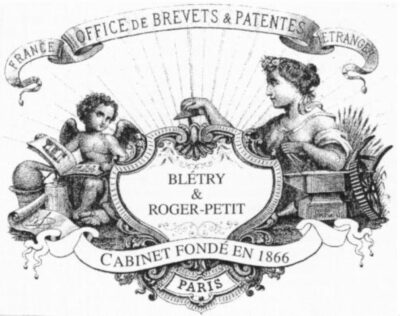Drafting and negotiation of license agreements
After many investments in research and development and in intellectual property, you have finally obtained a patent. You should be aware that it is then possible to make these investments profitable by valuating your patent, for example by granting a use license to a third party.
The patent is a valuable asset
Your patent gives you a monopoly of exploitation of your invention, for a maximum period of 20 years from the date of filing of the application. This is a competitive advantage since during this period, no one is allowed to manufacture or market your creation without your authorization. You will therefore be the only one able to do so, unless you plan to sign a license agreement with another company.
What needs does the license agreement meet?
Considering an operating license for its patents and other intellectual property rights is a relevant strategy since it makes it possible to generate income through the royalties paid by the contracting party.
This can also be helpful in the event that the patent owner does not have the industrial, commercial or financial capabilities to exploit their invention, but also if the invention is not related to their main activity and they simply want to bring it to life through a third party without investing themselves in new processes.
The license agreement is a contract that deals with the question of the exploitation of these rights, whatever they are: patent, trademark, design, software, know-how, etc. throughout their lifetime.
Drafting and negotiating license agreements
Many types of contracts are available in terms of intellectual property and participate in the life of your company.
The license agreement is one of them and, as Intellectual Property Attorneys, we are qualified to accompany you in all the stages: negotiation of the terms of the contracts with your partners or opponents, drafting of an adapted license agreement, follow-up of the agreement as well as watching its proper execution.
What is a license?
By signing such contract, the holder of an intellectual property right gives a third party (licensee) the right to use this IP right in whole or in part. The licensee may therefore use the intellectual property right of the owner to carry out their activity. In return, the licensee will pay the owner of the IP right a financial compensation.
This may be a license to manufacture, market, use, etc.

The content of the license agreement
In order to effectively protect the parties and ensure proper commercial exchanges with your partner, a license agreement must include several essential information, such as:
- The identification of the parties ;
- The precise designation of the granted rights: is it a patent, a trademark? Is there a transmission of know-how and methods together with the license?
- Whether or not the license is exclusive. In the event of an exclusive license, only the licensee will have the right to exploit the patent. If, on the contrary, the license is not exclusive, there may be several possible licensees of the same patent in the same domain or territory. More advantageous for the licensee which will encounter fewer competition, exclusivity makes it possible to negotiate higher entry fees.
- The territory concerned: in cases where the licensee is not able to cover the entire territory covered by the patent, for example, it may be interesting to grant a new license to a company based on other areas of interest. This is why it is important to clearly define the geographical scope of each contract and thus avoid future conflicts related to territories and exclusivities.
- The financial compensation (or remuneration, royalties): the amount of the royalty, methods of calculation and terms of payment should be included in the contract. This can be, for example, a percentage of the turnover coming from the exploitation of the patent or a flat fee corresponding to an estimate of the turnover.
- The confidentiality clause: it will limit the dissemination of confidential information to third parties;
- The duration of the license and its possible renewal;
- The terms of termination;
- The obligations of the parties.
Of course, it is strongly recommended to make any contract in writing. Brandon IP’s experts are at your side to advise and assist you in all these steps and in the negotiations that lead to a balanced agreement that has better chances to last.
In addition to our expertise in intellectual property, we rely on our knowledge of contract law, tax law, competition law, respect for privacy and personal data.
Do not hesitate to contact us for any information you need regarding your license agreements.
See also:
- Drafting, filing and defending a patent
- Challenges of value creation with your intellectual property
- Economic valuation: sell your rights or search for licensees



